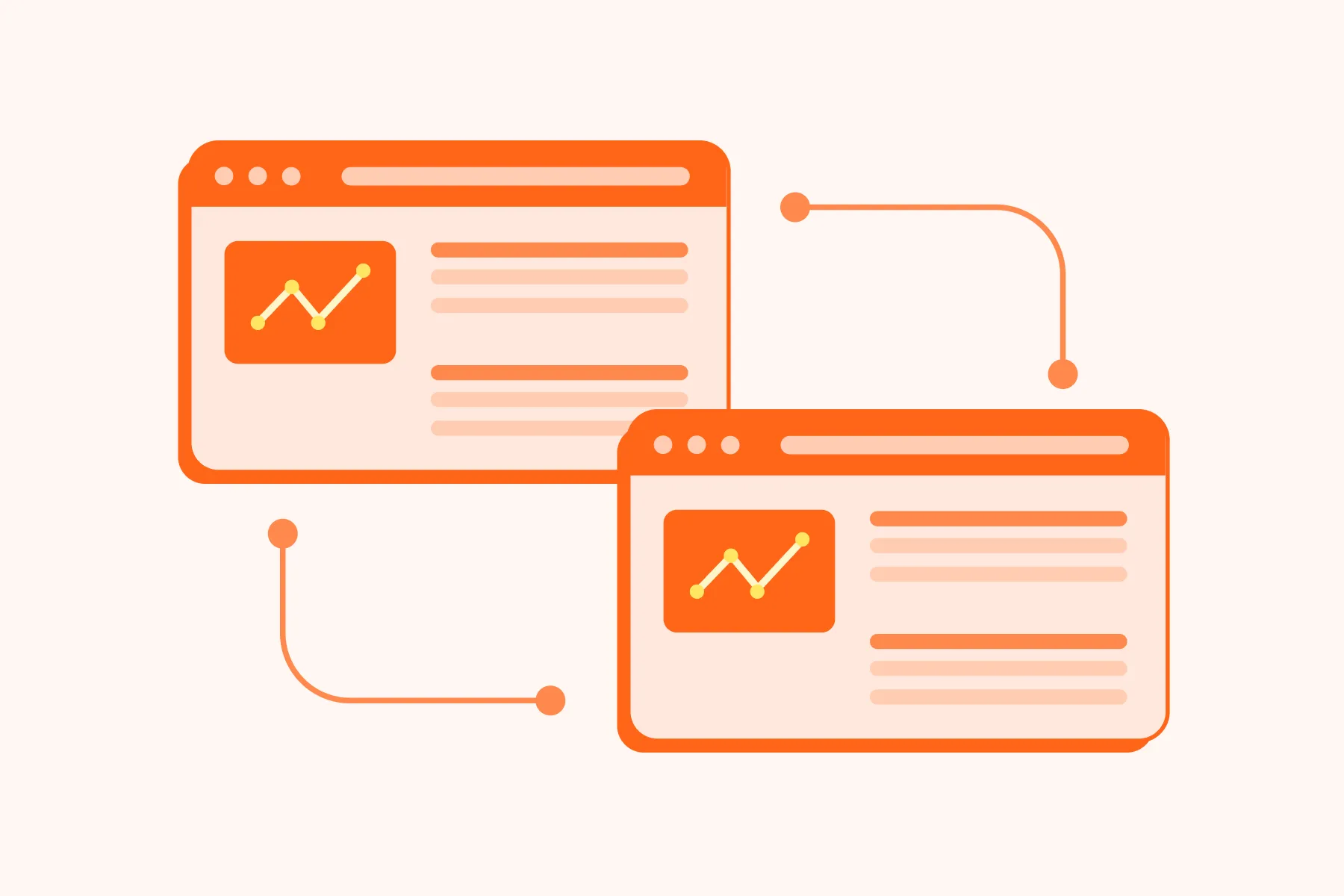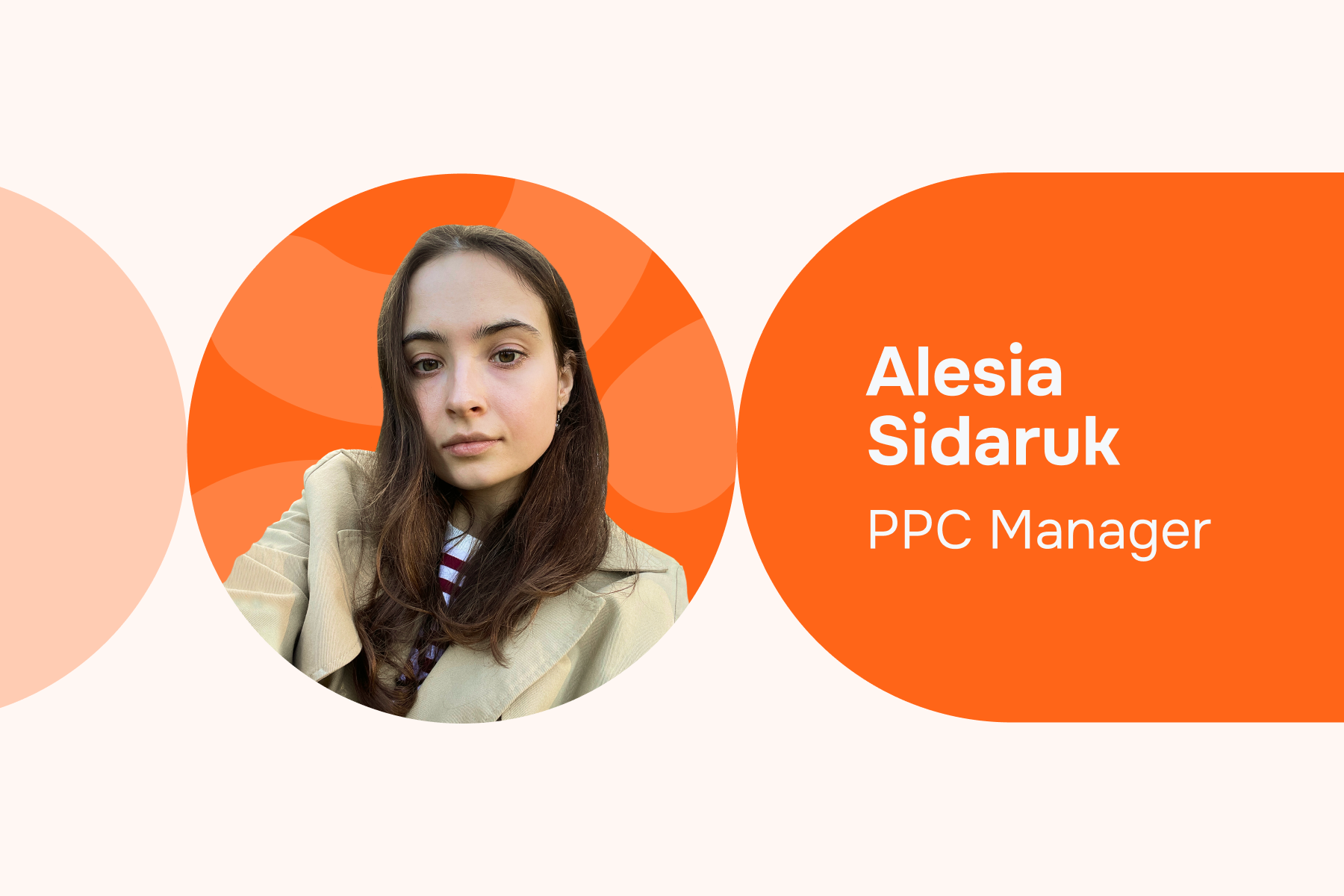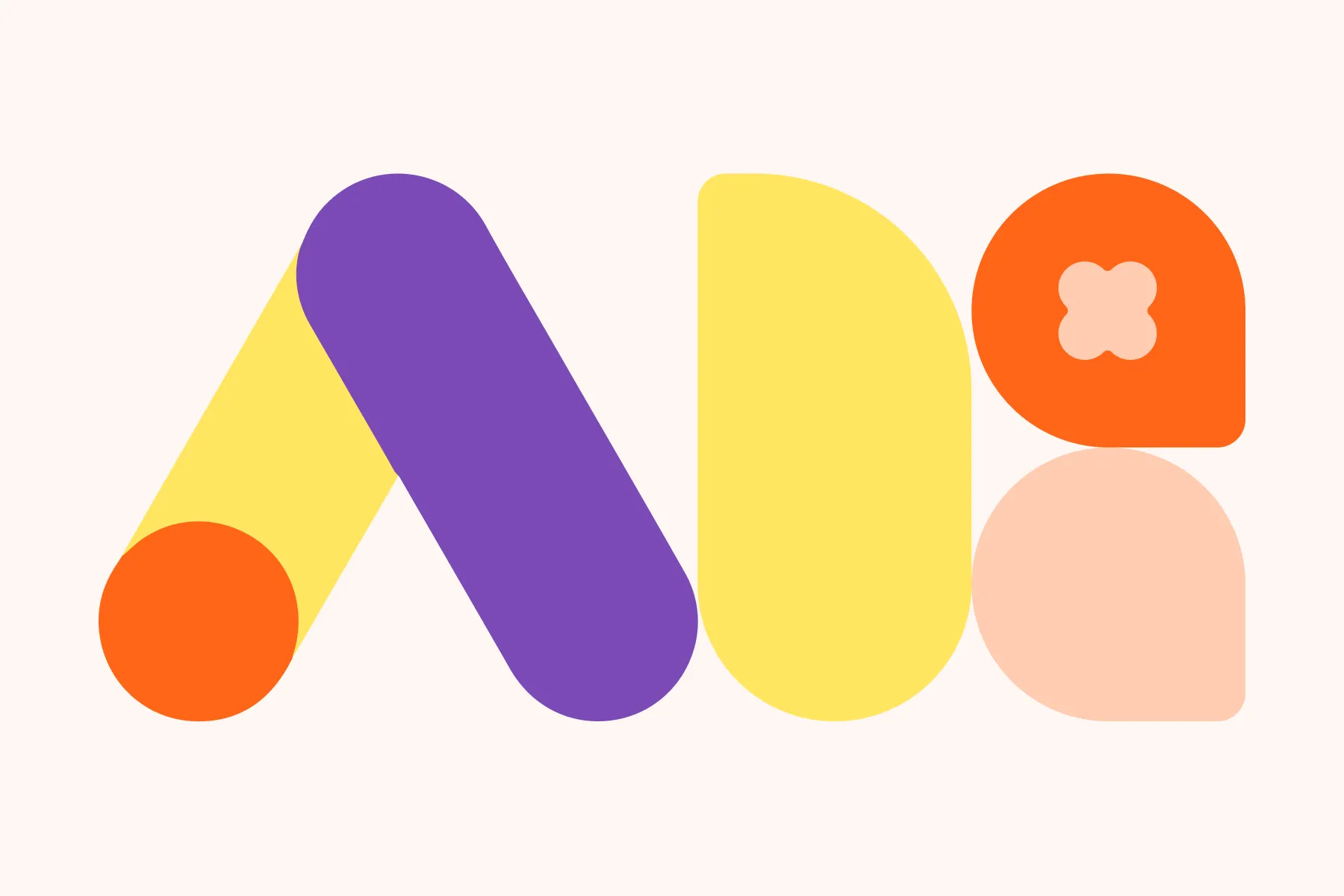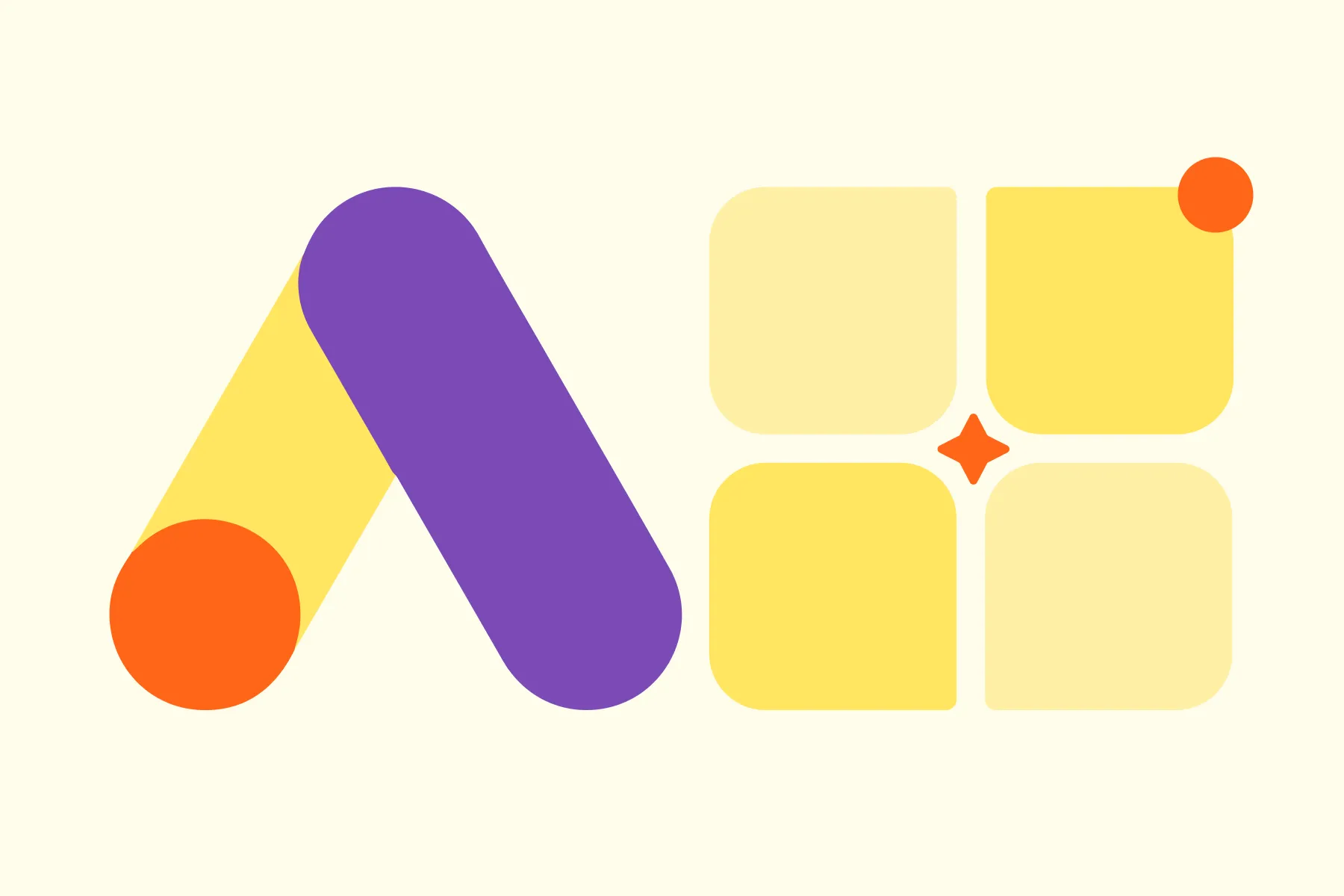Top 10 LLM Optimization Agencies in 2026
Anastasiya Khvin
January 27, 2026

We need to talk about something that's been keeping SaaS marketers up at night.
And no, it's not another Google algorithm update (though those are still a special kind of fun). It's this: your carefully optimized content? The stuff ranking beautifully on Page 1? ChatGPT has never heard of you.
Why LLM Visibility Is Now a Non-Negotiable for SaaS Growth
Something shifted while we were all perfecting our meta descriptions. The entire search landscape changed under our feet.
At Aimers, we work with SaaS companies every single day. We've helped brands like Mixpanel, Originality.AI, and ShipBob scale their paid campaigns and boost conversions. But here's what we're seeing in 2026: traditional search traffic still matters. Just not as much as it used to.
Your potential customers aren't Googling anymore. They're asking ChatGPT. They're querying Perplexity. They're having full conversations with Claude about which tools to evaluate.
If your brand isn't showing up in those AI responses, you're invisible to a massive chunk of your target market.
AI search engines and LLM platforms now handle billions of queries each month. And unlike traditional search, where someone might click through three different results, when an AI gives a recommendation, that's often the only answer the user sees. Winner takes all.
For SaaS companies, this shift hits different. Your competitors are already getting cited by AI, showing up in AI overviews. You're still thinking, "We'll wait and see"? That ship has sailed.
We've been running Google Ads management for SaaS companies since before AI search was even a thing. And what we're noticing now is that even the best-performing campaigns need a new layer of strategy. Paid search gets you in front of people actively looking, but AI visibility gets you recommended before they even start looking.
What LLM Optimization Actually Means (And Why Traditional SEO Isn't Enough)
So what exactly are we talking about when we say "LLM optimization"? Because there's a lot of buzzword soup floating around right now.
The Shift from Search Engine to AI Search Visibility
Traditional SEO was about getting Google's crawlers to understand and rank your content. You optimize your titles, build some backlinks, make sure your site isn't slow. Boom. Rankings go up.
LLM optimization? A different beast entirely.
These AI systems make decisions about what information to surface based on patterns they've learned. When someone asks an AI search engine for SaaS recommendations, the AI is synthesizing information from countless sources, deciding in real time what's authoritative and worth mentioning.
You're no longer optimizing for visibility in a list of blue links. You're optimizing to be synthesized, understood, and recommended by AI systems that your potential customers actually trust. Search Engine Journal recently reported that Google's AI-powered search experiences are fundamentally changing how users discover information, and brands need to adapt fast.
Generative Engine Optimization vs. Answer Engine Optimization
Generative Engine Optimization (GEO) is about being present when AI models like ChatGPT or Claude generate responses. These systems aren't linking to you. They're mentioning you, paraphrasing your value prop, recommending you alongside competitors.
Answer Engine Optimization (AEO) focuses on platforms like Perplexity or Google's AI Overviews that actually cite sources. These systems still generate answers but pull from recent data and provide links. According to research from BrightEdge, AI-generated search results now appear for a significant percentage of queries, and the number keeps growing.
You need both. Because your buyers are using both types of AI search.
.webp)
10 AI Optimization Agencies That Actually Know What They're Doing
1. Omnius

Omnius is an LLM optimization and SEO agency that bridges traditional Google search optimization with AI visibility strategies for platforms like ChatGPT, Perplexity, and Gemini. They've developed AtomicAGI, their in-house AI search visibility tool, to deliver accurate data and precision optimization strategies that most agencies simply can't replicate.
Their dual-focus approach has delivered exceptional results for notable SaaS and Fintech clients including TextCortex AI, Anna Money, Zencoder, Meniga, Native Teams, Global App Testing, and AuthoredUp, with outcomes like scaling from zero to 2.73M organic clicks in 13 months and growing monthly signups from 67 to 2,100+ in 10 months.
2. DigiTech
.webp)
If your SaaS growth strategy leans on content marketing, DIGITECH gets it. They've pivoted hard into optimizing content for AI retrieval. Their approach is all about natural language query optimization. They're targeting the actual questions your buyers ask AI systems.
Content ranking well in traditional search now shows up consistently in AI-generated recommendations. DIGITECH found that conversational tone performs better with AI systems. AI models trained on human conversations prefer content that sounds human.
Who would've thought the robots want us to sound less robotic? HubSpot's research backs this up. Audiences respond better to natural content whether reading directly or having it summarized by AI.
3. Profound Digital
.webp)
Entity optimization sounds technical because it is. But it's also increasingly critical for AI visibility.
Schema Markup and Structured Data for AI Retrieval
Profound Digital understands that AI systems fundamentally try to understand entities and relationships. When you give AI engines this information through schema markup, you make it easy for them to understand and recommend you.
At Aimers, we're data-driven in everything we do. What we appreciate is that same commitment to measurement and precision, applied to LLM visibility.
Entity optimization is like building a knowledge graph for your brand. You're teaching AI systems the connections between your product, use cases, integrations, and competitors. Google's documentation on knowledge graphs explains how these connections help search systems understand context. AI models work similarly.
4. Seobility
.webp)
High-growth startups have different needs than enterprise companies. You're moving fast, budgets are tight, and you require results yesterday.
Content Optimization for Google AI Overviews
Seobility carved out a niche helping startups target Google's AI Overviews. Getting included can drive significant qualified traffic.
This reminds us of how we approach conversion rate optimization. You identify the highest-impact opportunities first, test fast, and scale what works.Marketing rarely fails because of low traffic. The real leak is often deeper in the funnel.
Helping AI Systems Parse Your Value Proposition
SaaS startups have complicated value props. You're explaining new technology, disrupting established categories.That's hard enough for humans to understand, let alone AI.
Seobility helps startups clarify and structure their messaging so AI systems can actually parse what you do and why it matters. What's the point of being cited by AI if the AI is explaining your value prop fundamentally wrong?
5. Victorious SEO
.webp)
Some companies want a partner who can handle everything. That's where Victorious comes in. They understand how AI visibility fits into your broader digital strategy. They're not treating LLM optimization as a separate silo..
In our experience at Aimers working with SaaS brands, having alignment across channels matters. Nothing's worse than your SEO team pulling one direction while your paid team pulls another. We've built our entire service model around this integration principle: paid search, paid social, analytics, and landing page design all working together. Because even the best ad campaign can't save a broken landing page or bad analytics.
6. First Page Sage
.webp)
First Page Sage is doing something interesting. They're focusing specifically on conversational AI platforms. Not just search. The AI assistants people are actually talking to.
Optimizing for How People Actually Use AI
Your customers aren't typing search queries. They're having conversations. "I'm looking for a CRM that integrates with HubSpot and has good mobile apps. What should I consider?"
First Page Sage did the research to understand common AI prompts in different SaaS categories. Then they optimize their clients' digital footprints to show up for those conversational queries. The shift from keywords to questions to full conversations is a completely different way of thinking about search intent. Moz's research on conversational search shows how query patterns have evolved, and that evolution accelerates with AI-powered search assistants.
7. Aspiration Marketing
.webp)
Aspiration Marketing was early to the generative AI game. And it shows in their sophistication.
They're not just thinking about being mentioned. They're thinking about how you're positioned when you're mentioned.
Performance Tracking for Traffic from AI
How do you actually measure traffic from AI sources? Most analytics setups can't differentiate between someone who found you via ChatGPT versus traditional search.
Aspiration Marketing built attribution models specifically for AI-driven traffic. They're tracking actual conversions that originate from AI recommendations. At Aimers, our analytics team is obsessed with tracking performance. We don't guess, we measure everything.
They're also pioneering "AI visibility scoring" which quantifies how often and how favorably you're mentioned across different AI platforms. Companies are already using these scores in board presentations because investors are asking about AI strategy now.
8. GrowthRocks
.webp)
Product-led growth and AI visibility might not seem related. But GrowthRocks figured out the connection.
Natural Language Query Optimization That Feels Natural
PLG companies live and die by making it easy for users to find and understand your product. GrowthRocks helps SaaS companies structure information so when someone asks an AI about solving a specific problem, your product is naturally positioned as the solution.
GrowthRocks understands the psychology of evaluation after an AI recommendation. Users from AI assistants have different expectations than users from Google.They've already had a conversation about their needs. They don't need another explainer.
When we design landing pages for our clients, we think hard about where the visitor is coming from. A cold LinkedIn ad click needs different messaging than someone who just had a conversation with ChatGPT about their problem.
9. SEO Sherpa
.webp)
If you want someone who can get into the weeds, SEO Sherpa delivers. They understand crawling, rendering, APIs, and all the infrastructure that makes AI retrieval possible.
They're optimizing for AI retrieval augmented generation (RAG) systems, ensuring structured data feeds properly into knowledge graphs, testing different content architectures to see what AI systems prefer. Search Engine Land covered how RAG is changing search, and agencies that understand this technology have a real advantage.
For technical SaaS companies, that bilingual capability is critical.Most marketers can't have a conversation with your dev team about API endpoints.SEO Sherpa can.
10. Cultivate Communications
.webp)
Some agencies retrofitted their traditional SEO services for AI. Cultivate Communications started from scratch, building their methodology specifically for AI visibility.
Getting Cited by AI Became the New Backlink
Getting cited by AI is the new backlink. It's social proof and authority that directly impacts how other AI systems evaluate your brand. They're tracking citation patterns and testing what makes content more "citeable" by AI. They're building detailed benchmarks so you know how you stack up.
Their research has uncovered some counterintuitive findings. Longer content doesn't always perform better with AI systems. Sometimes a concise, well-structured explainer beats a 5,000-word comprehensive guide. It depends on what the AI is trying to do with the information. Ahrefs research on content length shows similar patterns in traditional SEO. Quality and relevance matter more than word count.
How to Choose the Right LLM Optimization Partner for Your SaaS
You've read about 10 agencies. How do you actually choose?
We've written extensively about how to hire a SaaS digital marketing agency, and many of those same principles apply here.
AI Visibility Audits What to Look For
Any decent AI optimization agency should show you where you currently appear in AI-generated responses, what your competitors are doing that you're not, specific technical gaps preventing AI systems from understanding your brand, and quick wins versus long-term strategies.
At Aimers, when we do deep audits for our clients, we're looking for those leaks. Where are you losing opportunities? A good AI visibility audit should uncover specific, actionable insights. Not vague recommendations. Actual next steps.
.webp)
Ask them to show you examples. Can they demonstrate how a competitor shows up in ChatGPT while you don't? If they're handwaving with generic advice about "content quality," run.
Balancing Traditional Search Engine Optimization with AI Strategies
Traditional SEO still matters. Google still drives massive traffic for most SaaS companies. You can't abandon everything you've built just to chase AI optimization.
The right agency partner understands this balance. They're helping you layer AI optimization on top of your existing strategy. Often, the foundational work is similar. Good content, strong technical infrastructure, clear value propositions. These things serve both traditional and AI search.
The best LLM optimization agencies aren't evangelists who think traditional SEO is dead. They're pragmatists who understand the transition we're in. We saw this same pattern with the shift to mobile, with the rise of social advertising, with video content. The winners weren't the ones who abandoned everything old for everything new. They were the ones who figured out how to integrate the new stuff with what was already working.
.webp)
If you're comparing different types of agencies for your broader marketing needs, we've also compiled a list of top SaaS digital marketing agencies that might be helpful.
Need Help With Your SaaS Growth Strategy?
Look, we get it. Adding AI optimization to your already-packed marketing roadmap feels like one more thing on an endless list. But here's what we've learned working with SaaS companies for over a decade: the teams that win aren't necessarily the ones doing everything first. They're the ones who figure out what actually moves the needle and double down there.
If you're wondering where AI optimization fits into your broader growth strategy, or if your current paid campaigns could be working harder for you, let's talk. We're Aimers, and helping SaaS companies grow faster is what we do. Not through magic bullets or trendy tactics, but through data-driven paid search, conversion optimization, and systematic testing.
Book a strategy call and we can talk about what's actually going to move the needle for your business. No sales pitch, just a real conversation about where you're at and where you're trying to go.
Because what matters isn't being on some list of "optimized" companies. Actually growing. Actually winning customers. Actually building a SaaS business that scales.
AI visibility is just one piece of getting there. An important piece, sure, but still just one piece of a much larger puzzle.
FAQs
How much does LLM optimization typically cost for a SaaS company?
How long does it take to see results from LLM optimization?
Can we do LLM optimization in-house or do we need an agency?
Will LLM optimization hurt our traditional SEO rankings?
How do I know if my SaaS company actually needs LLM optimization right now?

February 3, 2026

February 2, 2026

July 10, 2024









